Over the past few weeks, we’ve been working hard in preparation for the 2022 conference of the Association of Municipalities Ontario (AMO), where we will be meeting with cabinet ministers and their teams to discuss pressing issues impacting the rebuild of the tourism industry. Joining us will be our tourism delegation, consisting of: Destination Northern Ontario, Indigenous Tourism Ontario, OTEC, Boating Ontario, OMCA, Camping in Ontario, Smart Serve, RTO9, Kingston Accommodation Partners, and Blue Mountain Village Association.
Key AMO asks include: debt relief and action on commercial insurance, implementing a tourism workforce strategy, new tax incentives and partnerships to spur tourism growth, creating regional and localized solutions to the affordable housing crisis, continued transportation and infrastructure upgrades, climate change prevention and recovery supports, and long-term strategic investments to support the rebuild, growth, and resilience of our industry across tourism sectors and regions.
We are still scheduling meetings, but we have confirmed meetings so far with: Ministry of Tourism, Culture and Sport; Ministry of Northern Development; Ministry of Natural Resources and Forestry; Ministry of Indigenous Affairs; Ministry of Transportation; Ministry of Francophone Affairs; Ministry of Colleges and Universities; Ministry of Environment, Conservation and Parks; Ministry of the Attorney General; Ministry of Infrastructure; Ministry of Energy; Ministry for Seniors and Accessibility; and the Ministry of Public and Business Service Delivery.
We also have a meeting scheduled with Mayor Cam Guthrie, chair of the Ontario Big City Mayors (OBCM). The OBCM is comprised of mayors of Ontario cities with populations of 100,000 or more – collectively representing 70% of Ontario’s population. The key agenda items for discussion: the impact of rising visible homeless and vulnerable populations in Ontario cities, their impact on the safety of frontline tourism and hospitality workers, what Ontario’s big cities are doing to address the situation, and how TIAO can help advocate for the types of resources municipalities need to address a multi-pronged challenge.
AMO 2022 takes place August 14 – 17 in Ottawa. The countdown has begun.
This week, we also made a number of TV and media appearances discussing the Ontario Staycation Tax Credit. We also talked about what’s behind the delays at Toronto Pearson airport—emphasizing the impact of the labour crisis and legacy public health measures such as ArriveCAN slowing down processing times—how they’re impacting the capacity of tourism businesses to reach current and future visitors, and what needs to happen to address the situation.
As always, thank you for your continued support. And of course, if you have any questions or comments, please feel free to send me an email at jng@tiaontario.ca.
Jessica Ng
Director, Policy & Government Affairs


